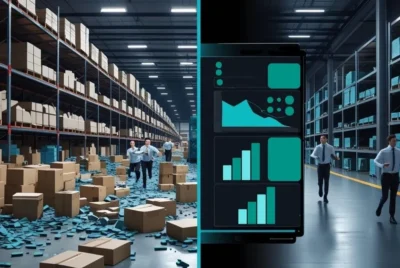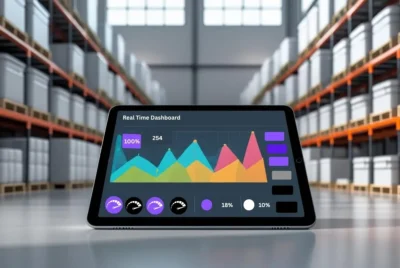Introduction: Why Stock Control Matters
Stock control is vital for every organisation. When mismanaged, it can become a major burden. A single mistake can disrupt operations and cause irreversible damage. Fortunately, ERP-based supply chain management offers a powerful solution. With ERP stock control systems, companies can avoid issues like overstocking, Stockouts, dead stock, or operational delays caused by poor inventory visibility.
ERP inventory control integrates supply chain operations into a centralised platform, allowing real-time visibility and control. This doesn’t only apply to inbound stock (raw materials), but also to outbound logistics—ensuring customer demands are met efficiently.
Industry leaders like Zara and Walmart are prime examples of this integration in action. These companies manage vast inventories of diverse products. ERP systems not only help them track stock but also enable inventory optimisation, monitor consumer preferences, and enhance overall customer satisfaction.
Real-Time Inventory Tracking with ERP
When supply chain operations are integrated with ERP systems, companies gain real-time visibility into stock levels. This allows them to monitor inventory across departments, locations, and warehouses. Businesses can make informed decisions—such as which stock to replenish, reassign, or retire—before problems arise.
With up-to-date data, companies can proactively prevent Stockouts or overstocking and plan restocking based on actual demand.
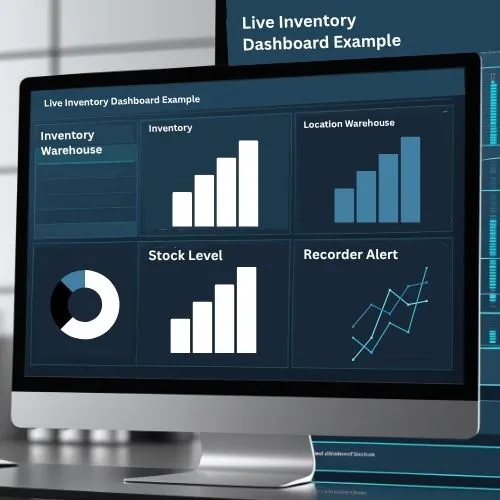
Smarter Demand Planning and Forecasting
One of the biggest challenges in stock control is inaccurate forecasting. Manual processes are prone to errors, often leading to misjudged demand. When ERP is integrated with supply chain systems, it can analyse historical data to forecast future demand more accurately.
The system can automatically trigger reorders when stock levels hit a predefined threshold, ensuring that supply always matches anticipated demand.
Streamlining Procurement and Logistics
Integrating ERP with your supply chain enables seamless collaboration with suppliers and logistics partners. This connection helps you procure materials at competitive prices by comparing supplier quotes within the ERP system.
Likewise, logistics providers receive real-time delivery schedules, ensuring timely and cost-effective stock movement. This streamlined approach helps reduce unnecessary inventory holding costs and improves delivery precision.
Efficient Warehouse and Delivery Management
An ERP system allows centralised control over multiple warehouses, even if they’re spread across different locations. It tracks incoming and outgoing stock, offering accurate warehouse-level visibility.
For e-commerce and retail businesses, ERP-integrated delivery planning ensures accurate, timely fulfilment of both wholesale and retail orders. Additionally, ERP systems manage returns, replacements, and replenishment effectively by analysing sales cycles and return patterns—keeping inventory levels optimal.
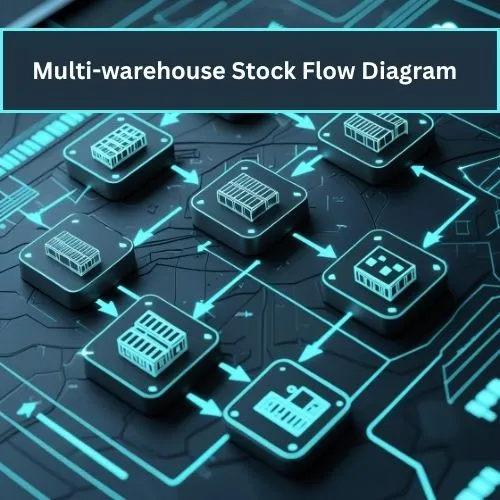
Data-Driven Decisions Through Analytics
ERP integration enhances decision-making by offering comprehensive reports on inventory flow, stock usage, and associated costs. These analytics help identify inefficiencies, such as slow-moving stock or high-return items.
With real-time data at their fingertips, decision-makers can better manage purchasing strategies, reduce waste, and align stock control with business goals.
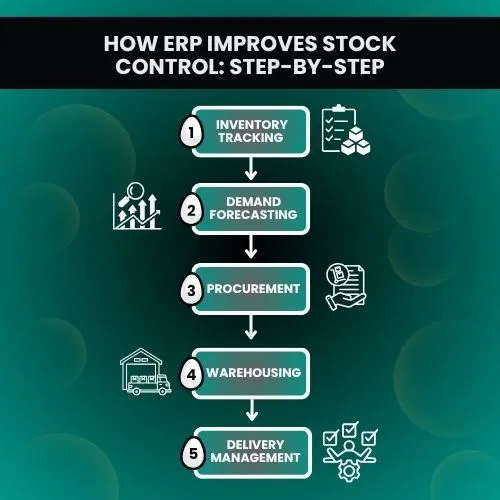
Final Thoughts: The ERP Advantage in Stock Control
Integrating supply chain management with ERP is no longer optional—it’s essential for companies aiming to stay competitive. From real-time stock visibility to data-backed planning, ERP stock management solutions offer complete control over inventory operations.
By linking suppliers, logistics partners, and internal teams on a single platform, ERP ensures smoother coordination, lower costs, and higher customer satisfaction.
Ready to transform your stock control strategy? Explore ERP solutions that suit your business needs and take control of your supply chain today.



